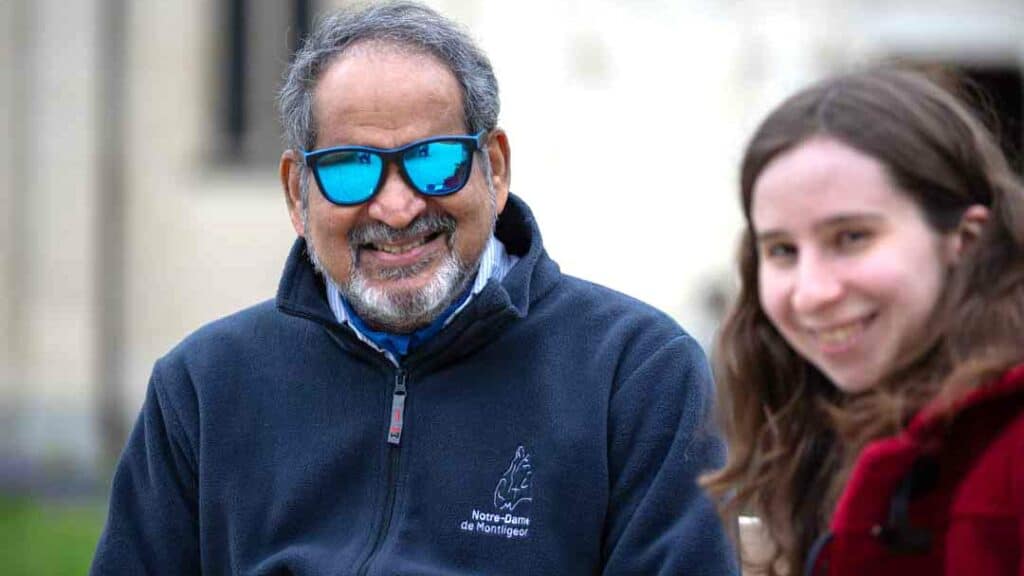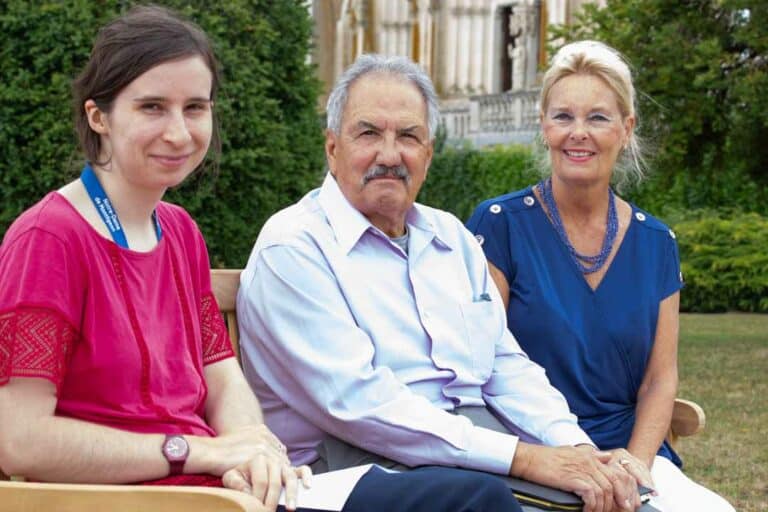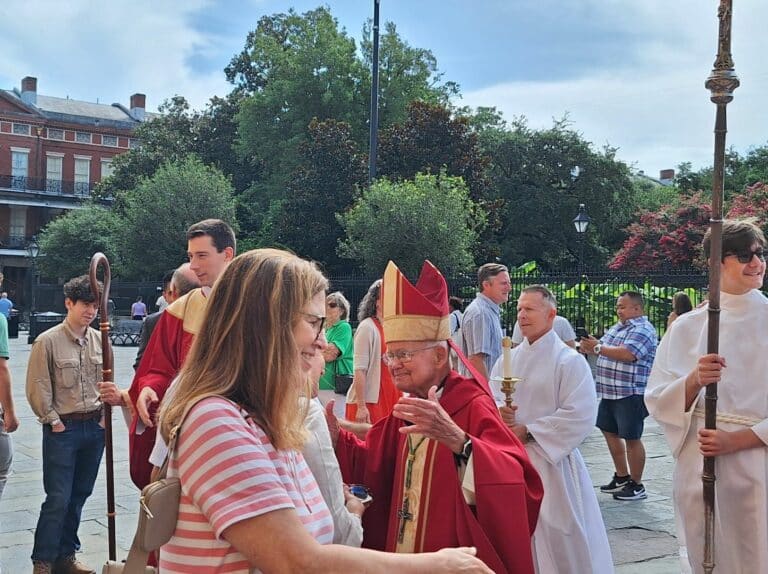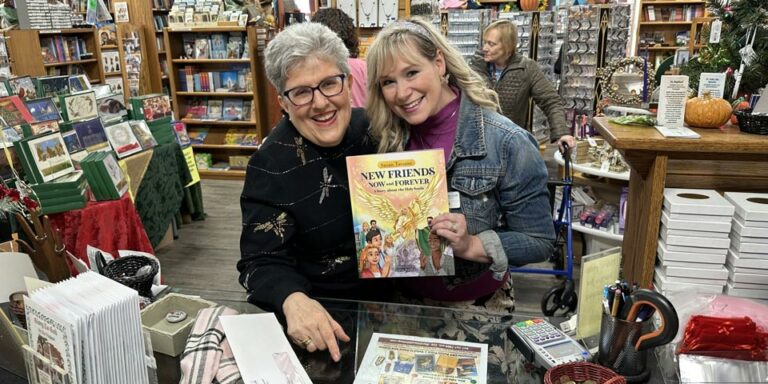Deacon Derick Soares and his wife Petra travelled across the world, all the way from Texas and spent the Paschal Triduum of 2025 at the shrine of Montligeon. He tells us about his pilgrimage for the holy souls and how he answered his calling to the diaconate despite his blindness.
” I’m Deacon Derick Soares from the Archdiocese of Galveston-Houston. I was in seminary from 2011 to 2016 at Saint Mary’s, and I was ordained in January 2017 by Daniel Cardinal DiNardo.”
I discovered the shrine through EWTN, a channel I listen to for hours each day to stay grounded in the Church’s teachings. One day, I heard a program about Montligeon, about the chapel of purgatory and the prayers for lost souls. I was especially moved by a moment when a mother came to pray and found the register of souls for babies who had died before birth. That scene really pierced my heart. I immediately messaged Petra saying, “We need to go there.” I didn’t even know where it was, I was just listening. The name was misspelled, the location was wrong — but I knew we had to come.
And now, a year later, here we are.
A pilgrimage to close a wound
There are two main reasons for coming. First, to close a wound we carry from the loss of a child. Petra had an ectopic pregnancy very early on, and I wanted to come here to acknowledge that child, write their name in the register, and pray for their soul.
Second, over the last fifteen years, I’ve developed a deep conviction that I need to pray for both of my grandfathers. I know very little about them, and they weren’t spoken of much in my family for different reasons. I’ve been offering masses for them. And each time I do, something opens up in my life. I sense this deep genetic and spiritual link between the past and the present.
What I hope to do, through my son John, is to begin a chain of perpetual Masses for them, and continue step by step, one day at a time.
Teaching to pray for the holy souls
In some ministries, I’ve been asked to teach on the Four Last Things — one of the core doctrines of the Church. I’ve done that.
I remember listening to Father Pacwa (…) and he once said in a teaching: “People leave the parish when you talk too much about hell.” They just don’t want to hear about it.
That stayed with me. There really isn’t much talk about these things. But as I grow in my own understanding of purgatory and the need to pray for souls, I see how vital it is.
So yes, I speak about it. In my homilies, I talk about the need for prayer. And I mention not just heaven, but also hell.
I truly believe in the mercy and grace of God — powerful enough to lift us to heaven. But that doesn’t mean God’s justice won’t also walk hand in hand with His mercy. You know?
Answering the call
My calling to the diaconate — well, sometimes we just don’t have the right words to express it. But for me, it felt like the same kind of calling that brought me to Montligeon.
I wasn’t blind then, but I walked into the diaconate like a blind man. There were so many obstacles and challenges. Even though I could study and eventually earned a master’s in pastoral theology, people often just focused on the negative.
It was like when Petra would help me through the classroom desks — it was hard. People questioned my presence, asked what I could possibly do.
But I told myself: “If the Magisterium says so, I should leave,” yet no one ever asked me to go.
Year by year, I continued. After six years, I was finally ordained. That whole journey was truly God’s will.
It really had nothing to do with me. I just hope — and I’ve prayed — that I could be of some use to the people around me. Because the Church isn’t the building; it’s the people who make up God’s Church.
Like Father Thomas said today in his talk — and as you translated to us — somewhere, somehow, someone is touched, some soul is moved toward God. And that’s all we can do for Him.
That’s how I found my way to the diaconate. It’s been a path of struggle, yes, but also of grace.




